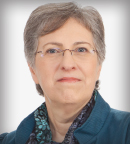Although KRAS is one of the most frequently mutated oncogenes in human cancers, an almost 4-decade long search for drugs that hit this target has been elusive—until now.
Sotorasib (formerly called AMG-510), a small-molecule inhibitor of the KRAS G12C mutation, demonstrated clinical activity and safety in the treatment of patients with advanced solid tumors, including non–small cell lung cancer (NSCLC). This was according to the phase I CodeBreak 100 trial reported at the European Society for Medical Oncology (ESMO) Virtual Congress 2020.1 Study results were published online in TheNew England Journal of Medicine to coincide with the presentation at ESMO 2020.2

“The KRAS G12C inhibitor sotorasib has the potential to address the unmet need for treatment of tumors harboring the KRAS G12C mutation.”— David S. Hong, MD
Tweet this quote
“The KRAS G12C inhibitor sotorasib has the potential to address the unmet need for treatment of tumors harboring the KRAS G12C mutation,” said lead author David S. Hong, MD, of The University of Texas MD Anderson Cancer Center, Houston. “Results of this phase I study showed that the novel first-in-class drug sotorasib produced durable disease control in heavily pretreated patients with NSCLC, and clinical activity was observed across a range of different biomarkers. We saw clinical benefit with mainly low-grade gastrointestinal and hepatic toxic effects in a heavily pretreated population.”
Experts attributed the favorable safety profile of this novel agent to its specificity in binding to KRAS G12C, which is present only in tumors.
The KRAS G12C mutation occurs in 13% of NSCLCs and 1% to 3% of colorectal and other cancers. The phase I trial enrolled 129 patients with advanced solid tumors harboring the KRAS G12C mutation. Among these enrollees, 59 had NSCLC, 42 had colorectal cancer, and 28 had other solid tumors.
The study met its primary endpoint of safety, with no dose-limiting toxicities or treatment-related fatal adverse events. Among patients with NSCLC, 19 (32.2%) had a confirmed objective response to the oral monotherapy, and 52 (88.1%) experienced disease control. “These cancers had been refractory to previous treatments,” Dr. Hong emphasized.
Study Details
CodeBreak 100 enrolled patients with 13 different locally advanced or metastatic tumor types harboring KRAS G12C mutation. The dose-escalation phase (n = 129 patients) involved assigning 2 to 4 patients per cohort to receive daily oral sotorasib at doses of 180, 360, 720, or 960 mg. Going forward, the 960-mg dose was selected for phase II studies.
During ESMO 2020, Dr. Hong focused on the dose-escalation and dose-expansion phases. The best results were observed in the NSCLC subgroup.
NSCLC Cohort
At a median follow-up of 11.7 months, the confirmed response rate was 32.2% for the NSCLC cohort treated at all dose levels and 35.3% for those treated at the highest dose level of 960 mg. The rate of stable disease for all patients with NSCLC was 55.9%, and the disease control rate was 88.1%. Tumor shrinkage was observed at all dose levels. Median progression-free survival was 6.3 months.
The median duration of response was 10.9 months for those with partial responses and 4 months for those with stable disease. Responses were seen across a range of patients whose tumors harbored other mutations, Dr. Hong noted.
“Responses and disease stability associated with sotorasib in these patients are encouraging.”— David S. Hong, MD
Tweet this quote
These responses in heavily pretreated patients with advanced NSCLC compare favorably with historical controls, he added. “Responses and disease stability associated with sotorasib in these patients are encouraging,” continued Dr. Hong. “In the NSCLC subgroup, the fact that 32.2% of the patients across all dose levels and 35.3% at the target dose of 960 mg had a response was particularly promising.”
Cohorts of Colorectal Cancer and Other Tumors
The median time to follow-up in the subgroup of patients with colorectal cancer was 12.8 months. Among the 42 patients with colorectal cancers and the KRAS G12C mutation, the partial response rate was 7.1%. Stable disease was reported in 66.7%, and 73.8% experienced disease control. The median duration of stable disease was 5.4 months.
Among patients with other KRAS G12C mutation–positive tumor types, partial responses occurred in 1 patient each with melanoma, appendiceal, endometrial, and pancreatic tumors. Stable disease was seen in 17 patients, and 4 had progressive disease.
Efforts to improve results in colorectal cancer will focus on combining sotorasib with other agents, including EGFR inhibitors. Trials evaluating sotorasib as monotherapy or in combination with various agents in patients with NSCLC and other solid tumors are underway, Dr. Hong reported.
Reflections From Study Discussant
Formal discussant of the CodeBreak 100 trial, Colin Lindsay, MD, of the University of Manchester, United Kingdom, stated: “Sotorasib is a triumph of academic drug discovery. We know that over many years, more than 3 decades, KRAS has been very difficult to target.”

Colin Lindsay, MD
“The efficacy of sotorasib is confined to the KRAS G12C mutation,” Dr. Lindsay explained. “We know this drug is safe, with no dose-limiting toxicity. The efficacy in patients with smoking-related lung cancer continues to be impressive at a follow-up of roughly 1 year. It is striking that the effects seem to be dose-independent,” he continued.
Dr. Lindsay did mention that clarification is needed regarding whether this drug has central nervous efficacy. “Questions do remain. What are the correct combinations for ongoing development? Can sotorasib be safely combined with checkpoint inhibitors? These questions will be addressed by the KRYSTAL and CodeBreak 101 trials. We absolutely need a phase III randomized controlled trial, which is CodeBreak 200,” he stated.
Additional Commentary
In an accompanying editorial in TheNew England Journal of Medicine, Patricia M. LoRusso, DO, of Yale Cancer Center, New Haven, Connecticut, and Judith S. Sebolt-Leopold, PhD, of the University of Michigan Rogel Cancer Center, Ann Arbor, commented: “This monotherapy trial showed responses across all dose levels tested, with no dose-limiting toxic effects identified. Responses were seen in patients with KRAS G12C tumors of various histologic subtypes…. Benefit was also seen with respect to progression-free survival…. This favorable safety profile, compounded with responses across multiple doses, indicated a potential for minimal overlap of toxic effects with those of other agents and points to the possibility of combination strategies.”3

Patricia M. LoRusso, DO

Judith S. Sebolt-Leopold, PhD
Both editorial authors noted there are key unanswered questions. They focus on the lack of complete responses, the differences between responses in NSCLC and colorectal cancers, the optimal dose and schedule of this drug, and identifying the most effective combinations. “Informed combination strategies may improve the likelihood of achieving complete responses to KRAS G12C inhibition,” they wrote.
DISCLOSURE: Dr. Hong has received institutional research/grant funding from AbbVie, Adaptimmune, Aldi-Norte, Amgen, AstraZeneca, Bayer, Bristol Myers Squibb, Daiichi Sankyo, Eisai, Fate Therapeutics, Genentech, Ignyta, Infinity, Kite, Kyowa, Eli Lilly, Loxo, Merck, MedImmune, Mirati miRNA, Molecular Templates, Mologen, NCI-CTEP, Novartis, Pfizer, Seattle Genetics, Takeda, and Turning Point Therapeutics; has received reimbursement for travel expenses from Bayer, Loxo, miRNA, Genmab, AACR, ASCO, and SITC; has served as a consultant or advisor to Alpha Insights, Acuta, Amgen, Axiom, Adaptimmune, Baxter, Bayer, COG, Ecor1, Genentech, GLG, Group H, Guidepoint, Infinity, Janssen, Merrimack, Medscape, Numab, Pfizer, Prime Oncology, Seattle Genetics, Takeda, Trieza Therapeutics, and WebMD; and retains other ownership interests in Molecular Match, OncoResponse (founder), and Presagia. Dr. Lindsay has served as a consultant to Amgen and CBpartners and has received institutional funding from Hoffmann–LaRoche, Amgen, Revolution Medicines, and Apollomics. Dr. LoRusso has received honoraria from Five Prime Therapeutics; has served as a consultant or advisor to AbbVie, Agenus, Agios, Astellas Pharma, AstraZeneca, Black Diamond, Cybrexa Therapeutics, CytomX Therapeutics, EMD Serono, Five Prime Therapeutics, Genentech, Genmab, GlaxoSmithKline, Halozyme, I-MAB, ImmunoMet, IQvia, Macrogenics, Pfizer, QED Therapeutics, Roche/Genentech, Salarius Pharmaceuticals, Shattuck Labs, Silverback, Sotio, Takeda, TRIGR, and Tyme; has received institutional research funding from Genentech; and has been reimbursed for travel, accommodations, or other expenses by Genentech. Dr. Sebolt-Leopold reported no conflicts of interest.
REFERENCES
1. Hong DS, Bang Y, Barlesi F, et al: Durability of clinical benefit and biomarkers in patients with advanced non-small cell lung cancer treated with AMG 510 (sotorasib). ESMO Virtual Congress 2020. Abstract1257O. Presented September 20, 2020.
2. Hong DS, Fakih MG, Strickler JH, et al: KRASG12C inhibition with sotorasib in advanced solid tumors. N Engl J Med 383:1207-1217, 2020.
3. LoRusso PM, Sebolt-Leopold JS: One step at a time—Clinical evidence that KRAS is indeed druggable. N Engl J Med 383:1277-1278, 2020.

